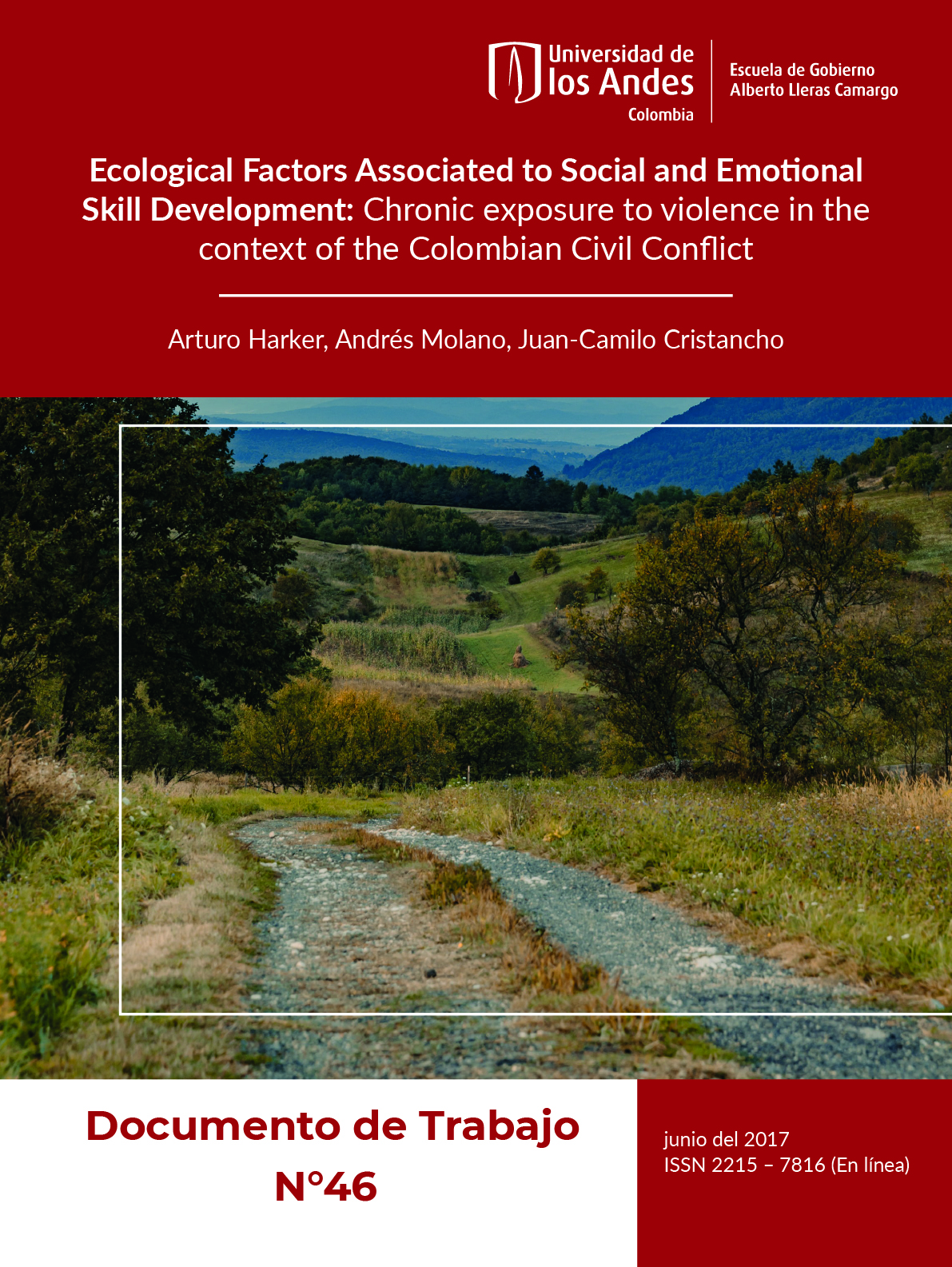Ecological Factors Associated to Social and Emotional Skill Development: Chronic exposure to violence in the context of the Colombian Civil Conflict
Autores: Arturo Harker, Andrés Molano, Juan-Camilo Cristancho
Cognitive, social, and emotional development throughout life is contingent to affordances of the environments in which individuals develop. These abilities are the result of multiple interactions with our ecosystem and the people that surround us. Namely, chronic exposure to violence has been shown to tamper positive human development. These potential negative consequences are particularly challenging in Colombia, a country stricken by more than five decades of civil conflict. In this paper, we evaluate the extent in which chronic exposure to violence —measured at the municipality level— affects children and adolescent’s social and emotional development. Our findings indicate that exposure to violence —particularly homicides— has an important negative association with unique measures of: (i) empathy, (ii) subjective beliefs on the acceptability of the use of violence, and (iii) non-confrontational reactions when provoked, all measured in a national standardized test. Additionally, we observe that the schools in the most violent municipalities are precisely the ones that have less resources that moderate the association between skill development and violence.
